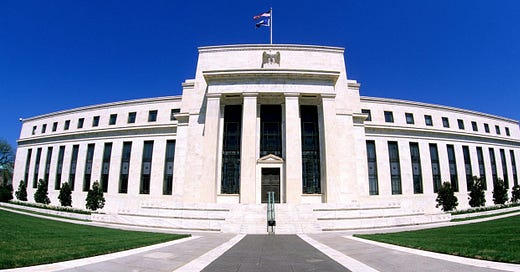In most of my recent writings on matters relating to inflation, interest rates, and quantitative action, I have emphasized what is most important is to understand what is that the Fed wants you to believe. I kid you not - I am not making this up - let me quote former Fed Chairman Ben Bernanke’s own words, “monetary policy is 98% talk and 2% action” (at least, it is a tad better than no action, talk only - NATO). The recent talk has been all about talking down inflation by saying that it has peaked and they are bringing down demand. Just as the ‘transitory’ theory was spoken into the economic psyche by the Fed, and distributed by the media and politicians so has the ‘inflation has peaked’ theory.
It is no doubt that the ‘transitory’ narrative influenced the public and gave Congress the freedom (and the cover) to push through another $3 trillion in additional fiscal spending. If it was not for West Virginia Senator Joe Manchin who did not support additional stimulus plans (as he was concerned about the rising inflation), the US would have been dealing with inflation in the mid-teens or even higher.
The ‘inflation has peaked’ theory will change people’s behaviors and expectations which in turn is helping inflation to soften. In this context, the Friday inflation report for May will be very important. For some reason, if it comes much lower than expected, the Fed will be very pleased and will even make drum beats saying “we told you so.”
Yesterday the world bank downgraded global growth to under 3%. This news was very good for the stock markets. After a strong climb in the US yields, the 10-year yield also reversed to trade below 3%. As we have discussed earlier, in the current environment of inflation being the top concern, the bad news is good news for the stock markets.
The Fed’s intention is to guide demand lower and think they are succeeding on that front. They have been very honest on the supply side. There is nothing much that they can do and it is true. They know very clearly higher rates are not a solution to this stagflationary scenario. What they clearly want to avoid is an economic crash induced by an aggressive global central bank tightening campaign.
Look what’s happening in Europe: The ECB still has deposit rates at minus 50 basis points. Meaning you have to pay to the bank to keep your money on deposit. They are begging you to spend and not save. It is not the sort of policy you will run when inflation is running at 8%. The main issue is the central bank’s past wrong and excessive policies are catching up with them and they are caught between a rock and a hard place.
If you received value from this post, and you’d like to send some back, or if you’d like to signal to me to continue spending time on these types of explorations, feel free to buy me coffees (thank you!):
So, there we go. Thanks for reading Breezy Briefings. If you enjoyed this, I'd really appreciate it if you could take a second and tell a friend. Honestly. It makes such a big difference.
Forward this email. Recommend the newsletter. Share on Twitter, WhatsApp, Telegram, LinkedIn, Slack, wherever!
Join Breezy Briefings’ Official Telegram Channel: https://t.me/BreezyBriefings
Abraham George is a seasoned investment manager with more than 40 years of experience in trading & investment and multi-billion dollar portfolio management spanning diverse environments like banks (HSBC, ADCB), sovereign wealth fund (ADIA), a royal family office and a hedge fund. Currently, he is a co-founder of a new hedge fund where foreign citizens can invest in Indian growth stocks like Tanla operating in hyper-growth markets like CPaaS.



